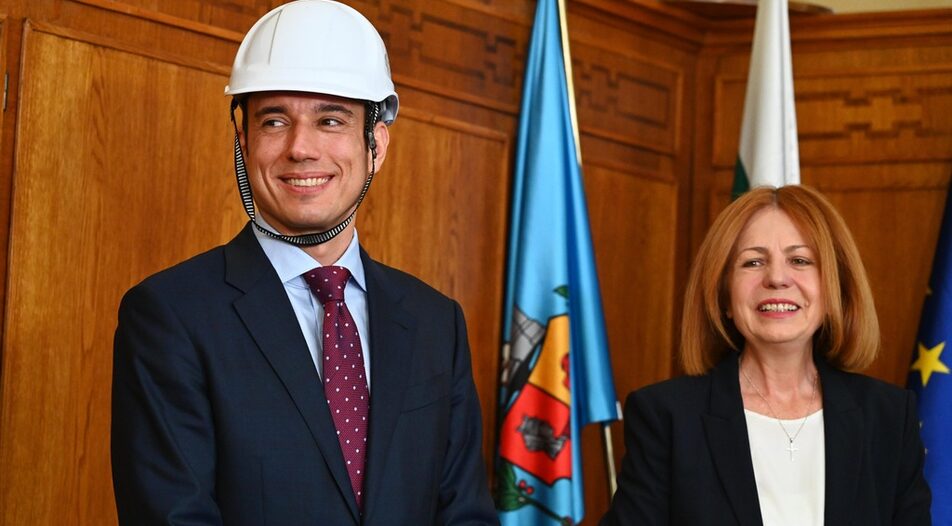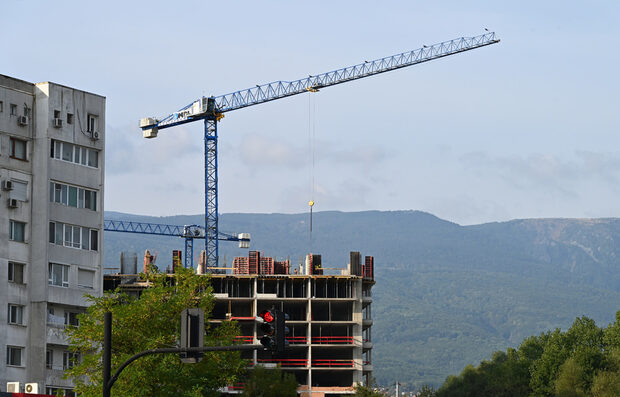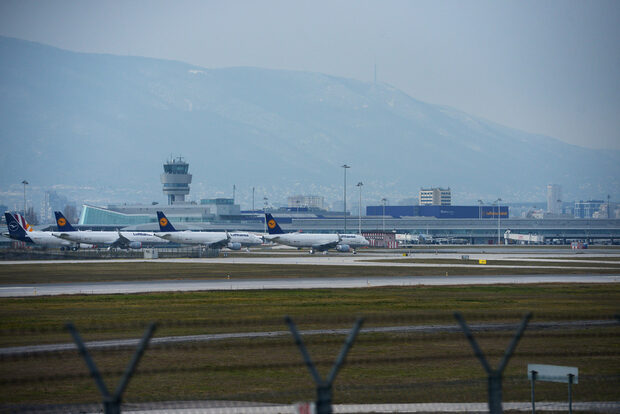As of 13th November, the Sofia Municipality has a new mayor - Vasil Terziev. He won a runoff vote in last month's local elections as a nomination of the alliance of the We Continue the Change-Democratic Bulgaria (WCC-DB) coalition and Save Sofia political party. Terziev has vowed to open a new chapter for the city after 18 years of GERB governance but shortly after he took oath of office it became clear how challenging this task would be, as the municipal councilors of his group do not hold a majority in the local parliament. At its first session, the Sofia Municipal Council (SMC) failed to elect a chairperson, which is unprecedented in Sofia's recent history. All parties voted for their own nominees, while GERB did not nominate a candidate, making the situation even more complex. Currently, negotiations between the political groups are ongoing, and it remains to be seen whether there will be a coalition between WCC-DB and GERB at the local level, despite Terziev's election campaign focused on challenging GERB's model of municipal governance.
Who is Vasil Terziev?
Although his name may not be widely known to the general public, Vasil Terziev is one of the most recognized and popular figures in the Bulgarian IT sector. He has traversed the entire path of developing a successful software business and has worked on both sides of the spectrum - as an entrepreneur, manager, and investor in other companies.
He is best known as the co-founder and CEO of Telerik, a global provider of software development tools and content management solutions. In 2014, Telerik was sold for 262.5 million U.S. dollars, marking the largest deal in the history of Bulgarian startup ecosystem.
In 2017, Terziev became a managing partner at Eleven Ventures, an early-stage venture capital fund based in Bulgaria, which has invested in some of the most iconic tech companies in Southeastern Europe.
Recognized as one of the region's top investors, he led Eleven's investments in Bulgaria's first unicorn, Payhawk, which secured the largest funding round in the history of the Bulgarian startup ecosystem, of 120 million dollars in 2021. Eleven also invested in SMSBump which was later acquired by Yotpo in one of the largest deals in the entrepreneurial sector in Bulgaria, as well as NitroPack, the fastest-growing IT company in Bulgaria by revenue in 2021. In May 2023, Vasil Terziev stepped down as partner at Eleven Ventures to focus on public activities.
The path to the Sofia Municipality
During the summer, WCC-DB and Save Sofia, led by Boris Bonev, announced Vasil Terziev was their candidate for Sofia mayor. At that time, he presented a vision for a new style of governance with new responsibilities within the municipality, a different structure, and the involvement of experts. His candidacy was supported by the civil organization Sofia's Team, led by architect Lyubo Georgiev, which includes specialists in various aspects of city functioning, some with prior experience in municipal affairs. According to Vasil Terziev, the municipality should be managed transparently and differently, and he believes that his experience as an entrepreneur and manager, along with the team of specialists behind him, will help him make this vision come true.
Many reforms
The highlights of Terziev's management program focus on transparency and digitization, aiming to reduce corruption and improve the overall quality of governance at all levels. It also prioritizes enhancing urban transportation and creating a better environment for children in schools. Notably, there's an idea to combat urban sprawl by establishing a new urban planning unit with a long-term perspective. Urban planning is a crucial aspect of municipal governance in other countries, but in Bulgaria, including its capital, such an approach is considered unconventional.
Here's what the new mayor proposes:
#1 Construction and Repairs Done Differently
One of the most common promises in this election campaign was to put an end to poor execution of city infrastructure projects, emblematic of the previous mayor's mandates. According to the new mayor's program, this will change through quality standards for the urban environment as components of public procurement procedures, and strict oversight at all key stages of the process. The introduction of a "blacklist" of unethical contractor firms, a measure that Romania has implemented this year, is also an option.#2 New Routes, Bike Lanes, Parking, and Paid Zones
Vasil Terziev suggests optimizing public transportation routes based on how people move around the city. Smart traffic lights will prioritize public transportation at intersections, raising questions about the intelligence of the current ones. The plan includes providing transportation to and from metro stations and intra-neighborhood electric transportation for convenient connections. Buffer parking lots, bike lanes on secondary streets to reduce congestion on main arteries, and discussions about underground and multi-story neighborhood parking facilities to reduce on-street parking are also part of the proposals. The program places a strong emphasis on the development of tram transportation.
#3 More Greenery and Accessible Vitosha Mountain
The measures for enhancing greenery in the city span several areas: street vegetation, inter-block spaces, new parks, and accessibility of Vitosha Mountain. The program promises construction of parks already planned, creation of green belts along major roads, and the establishment of "pocket" spaces for tree planting. Activating the Knyazhevski and Dragalevski lifts will take time, as a structural and management plan for the Vitosha Natural Park needs to be drawn first. A quicker measure is to integrate bus lines to the mountain into the regular routes of the city's public transportation system.
#4 Kindergartens and Schools
Sofia is well-known for its shortage of kindergarten space. First and foremost, areas that can be repurposed into temporary branches of existing kindergartens will be identified while gradually building new ones. The idea of "popularizing the concept of creating 'corporate' children's centers associated with major companies" is intriguing, but it's not further elaborated upon.
There are ambitious plans for schools, which is somewhat expected given Terziev's role as an entrepreneur who founded the most successful IT school in the country - Telerik Academy. For instance, he plans to establish a fund for school improvement using its resources as well as donations from benefactors or sponsors. The aim is to provide additional material resources through this fund, provided that schools voluntarily adopt and implement a quality assessment system.
All of these promises are at this stage, just that- promises. The hope is that they won't remain on paper, which also depends on the residents of Sofia as the most vested stakeholders.
As of 13th November, the Sofia Municipality has a new mayor - Vasil Terziev. He won a runoff vote in last month's local elections as a nomination of the alliance of the We Continue the Change-Democratic Bulgaria (WCC-DB) coalition and Save Sofia political party. Terziev has vowed to open a new chapter for the city after 18 years of GERB governance but shortly after he took oath of office it became clear how challenging this task would be, as the municipal councilors of his group do not hold a majority in the local parliament. At its first session, the Sofia Municipal Council (SMC) failed to elect a chairperson, which is unprecedented in Sofia's recent history. All parties voted for their own nominees, while GERB did not nominate a candidate, making the situation even more complex. Currently, negotiations between the political groups are ongoing, and it remains to be seen whether there will be a coalition between WCC-DB and GERB at the local level, despite Terziev's election campaign focused on challenging GERB's model of municipal governance.












